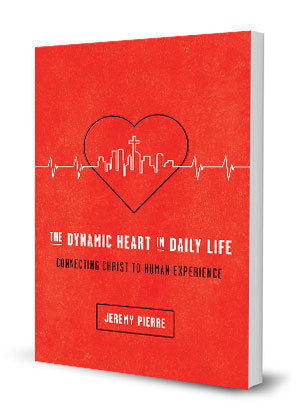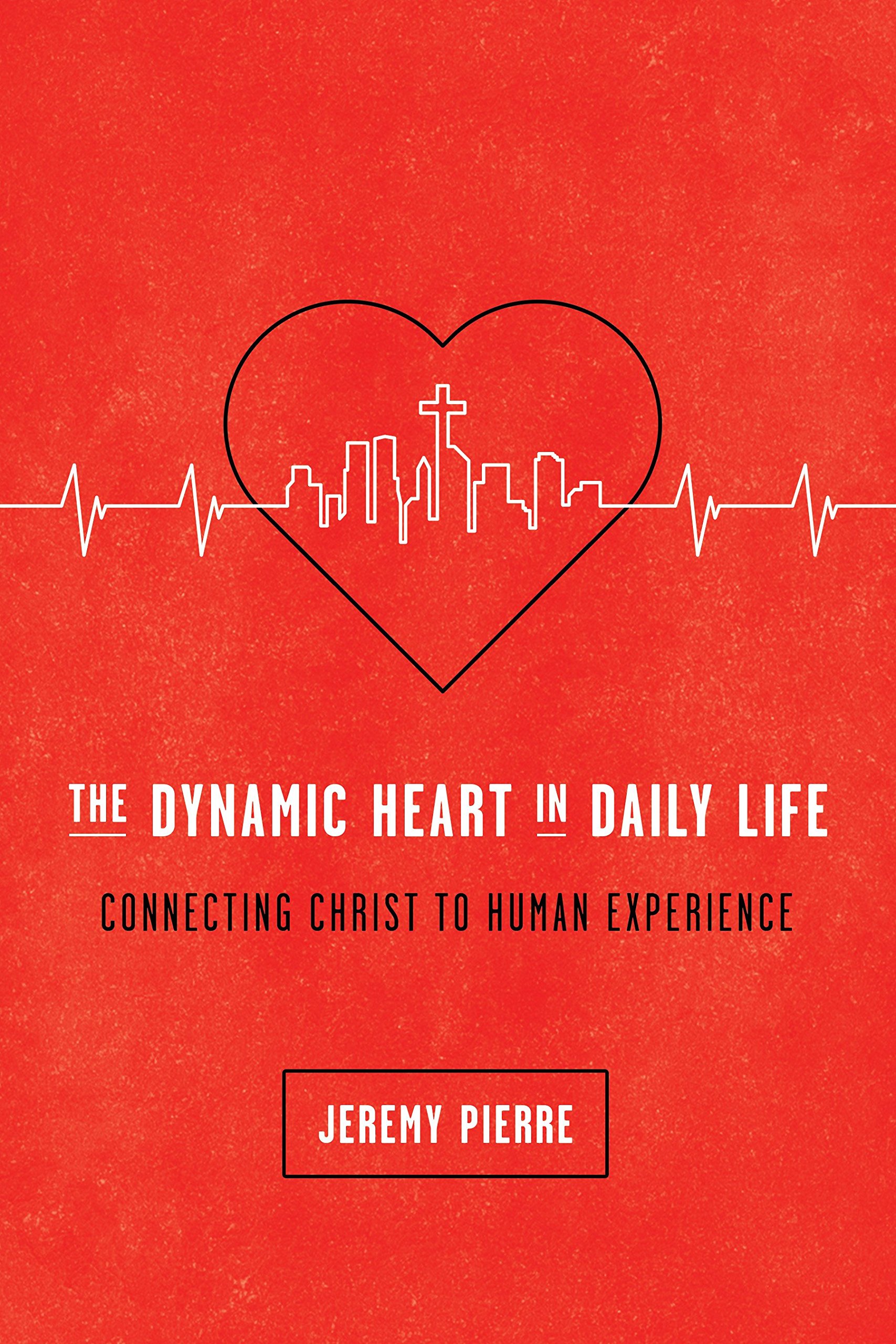The Dynamic Heart in Daily Life: Connecting Christ to Human Experience is a treasured tool I very highly recommend and use regularly in counseling. If you’re a counselor, you’ll appreciate this tool to help your counselees. If you’re not a counselor, but want to understand why you feel, and say, and do, the way you do, then this book is for you too.
READ A CHAPTER –> Wouldn’t you like to read a chapter? Here’s a link to chapter one.

In this brief article, you’ll learn from Jeremy Pierre’s book:
- What makes your heart tick
- How the heart is corrupted and redeemed
- A plan to counsel the heart
What Makes Your Dynamic Heart Tick?
Your heart responds cognitively, affectively, and volitionally to the life’s circumstances. It is multidimentional, it is dynamic. Most important, faith in Christ is the means by which your heart can respond to life differently, better.
Heart change leads to lasting life change
Did you know each person’s heart is both simple and complex? The heart has automatic responses to situations. But underlying these seemingly auto-responses are deep beliefs, desires, and commitments of which people are generally unaware.
However, people can become aware and should. While psychotherapy on the whole divides awareness into conscious and subconscious, Scripture has a multifaceted view.
The Dynamic Heart, Corrupted
The corruption of the heart began at the Fall (Genesis 3) and infects all of the dynamic heart: cognition, affection, and volition. It shows up as idolatry.
Idolatry is a whole-hearted inclination that fails to believe God is God and worship him alone.
An alcoholic, then, is not worshipping a bottle but something deeper and more complex—a way to get something good apart from God. As this becomes habitual, the person loses sight what the idol is doing to him and he takes on the deadness of the idol to his detriment. God interrupts, he gives a Cross-shaped message of hope.
The Dynamic Heart, Redeemed
Jesus redeems the dynamic heart so it can do what God intends: worship him in thought, desire, and choice. God made the heart to imitate his own. Did you know you are an image-bearer?
While God is unlike people in many ways (e.g., he is omniscient), he is like people in some ways. For instance, he reasons and has emotion. As believers respond whole-heartedly to God and without reservation in reflective prayer and careful study of Scripture, they become more like Jesus.
Counseling the Dynamic Heart
A plan for counseling the dynamic heart requires four tasks. They are:
READ: Hearing people’s hearts
Llistening is crucial to understanding a hurting person and her problem in its context. Hearing the heart includes
paying attention to what the counselee is saying (and not saying).
REFLECT: Helping people understand their responses
Self-awareness helps a hurting her connect her intuitive (or, automatic) responses to their belief system. Then she can challenge her automatic heart responses and begin to change.
RELATE: Looking to Jesus
With greater self-awareness of one’s responses, she sees that the help she needs comes from Jesus. Just as a believer trusts Jesus for her salvation from sin, she also learns to trust him for helping her make new heart responses.
RENEW: Calling for new responses from faith
Commitment to change is key. This requires an active faith since “heart change occurs as it is lived out, shaping and reinforcing new values and commitments,” Pierre writes.
For You
If you counsel others formally or informally, why not download the first chapter of this book? The link is at the top.












